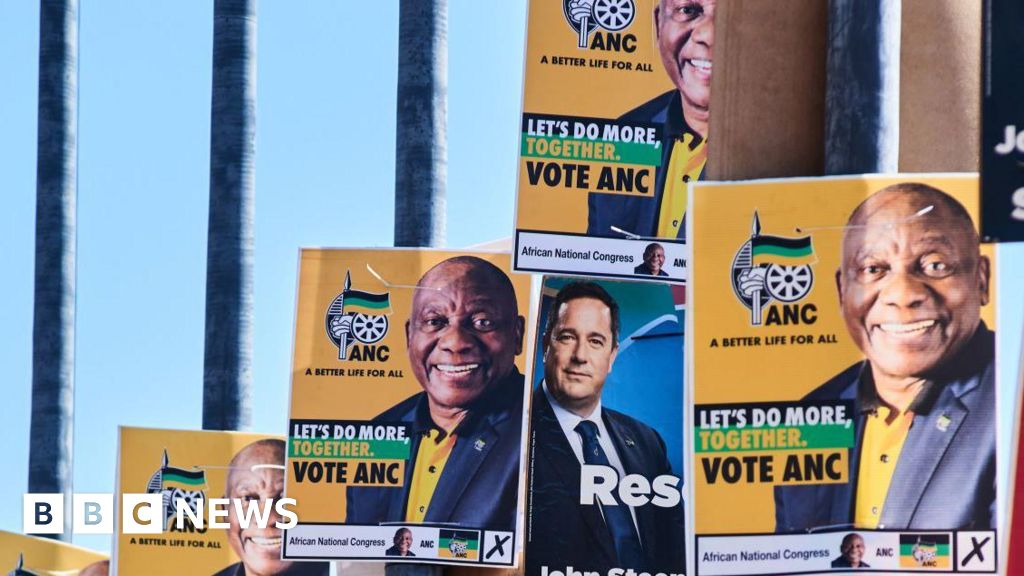The newly elected MPs will elect a president later on Friday, as the National Assembly meets for the first time since the 29 May elections.
They will meet in a convention centre in Cape Town because the parliament complex was damaged by fire several years ago.
ANC secretary-general Fikile Mbalula says the coalition deal is on track and that the agreement with opposition parties is a “remarkable step”.
“We are engaging beyond this sitting on what needs to be done to constitute the government of national unity. Our work doesn’t stop,” he said.
An alliance between the centre-right DA and the ANC is unprecedented as the two parties have been rivals for decades.
The ANC led by Nelson Mandela led the campaign against the racist system of apartheid in 1994 and won the country’s first democratic elections.
The DA’s critics have accused it of trying to protect the economic privileges the country’s white minority built up during apartheid – a charge the party denies.
DA leader John Steenhuisen said the deal was a “new chapter in our history”.
He told journalists that in return for the DA’s support of Mr Ramaphosa, the ANC would back the DA’s Annelie Lotriet as deputy speaker of parliament.
He also said the power-sharing arrangement would involve cabinet positions for the DA which has until now been an opposition party.
The deal also includes the Inkatha Freedom Party (IFP), a conservative party with a strong Zulu base, which got 4% of the vote, and the Patriotic Alliance (PA), which draws support from the coloured community, as people of mixed-race are known in South Africa.
The agreement also covers the powerful local governments in the key provinces of Gauteng and KwaZulu-Natal.
Mr Steenhuisen said: “Through the votes, the country has made it clear that they do not want one party to dominate our society.”
The IFP’s Thami Ntuli has been elected as KwaZulu-Natal premier. This is a setback for former President Jacob Zuma, who hoped his uMkhonto weSizwe (MK) party would lead the province, where it won by far the most votes but fell short of a majority.
Although it is being billed as a Government of National Unity, the ANC failed to get the third- and fourth-biggest parties – MK and Julius Malema’s Economic Freedom Fighters (EFF) – to join.
The coalition deal is likely to be welcomed by the business sector, who think it will guarantee economic stability and avoid capital flight as it does not include the EFF and MK, who advocate nationalisation of land, mines and banks.
MK had set the resignation of Mr Ramaphosa as one of the conditions for entering into a coalition, which the ANC rejected.
Mr Malema on Thursday evening said the EFF had refused to join a government which included the DA, saying it was part of the “imperialist agenda”.
The ANC’s deal with the DA and IFP is seen as an attempt to promote racial and ethnic reconciliation following a bruising election campaign.
President Ramaphosa has previously accused the DA – which draws its support mainly from racial minorities – of being “treasonous” and “reactionary”.
This article was originally published by a www.bbc.com . Read the Original article here. .


